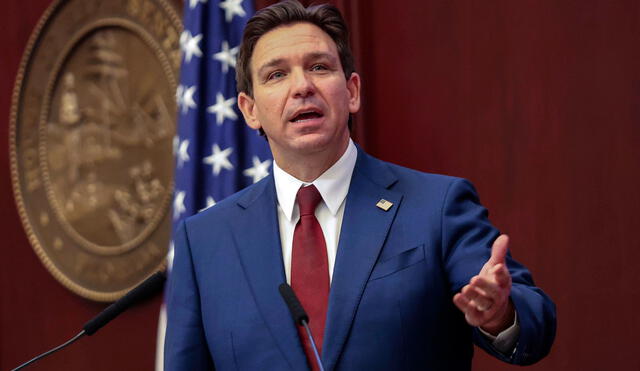Florida's Republican Ron DeSantis surge: How a 1.2 million voter lead is reshaping the state's political landscape
Florida's political landscape has undergone a historic transformation, with registered Republicans now outnumbering Democrats by 1.2 million voters. This shift has empowered Governor Ron DeSantis and state leaders to advance a conservative agenda.

In recent years, Florida has experienced a significant political transformation. Once considered a battleground state with a slight Democratic edge, the Sunshine State now boasts a substantial Republican majority. As of March 2025, registered Republicans outnumber Democrats by approximately 1.2 million voters, marking a historic shift in Florida's political dynamics.
This remarkable change has not only altered the state's electoral landscape but has also empowered Republican leaders to implement a more conservative agenda. Governor Ron DeSantis, in particular, has capitalized on this momentum to advance policies that reflect the party's priorities, solidifying Florida's status as a Republican stronghold.
Republican dominance and policy initiatives
The growing Republican majority has enabled the swift passage of legislation aligning with conservative values. One notable initiative is the proposed reduction of the minimum age for purchasing firearms from 21 to 18. This proposal, backed by Governor DeSantis and other Republican leaders, aims to restore Second Amendment rights to younger adults, especially those eligible for military service. While supporters argue for individual freedoms, opponents express concerns about potential safety implications, referencing past incidents like the Parkland school shooting.
In addition to gun legislation, Republican lawmakers are seeking to prohibit the use of state funds for campaigns related to constitutional amendments. This measure is part of a broader effort to impose more restrictions on citizen-led amendment drives, reflecting the party's intent to maintain control over the state's legislative direction. As the Republican Party continues to consolidate its power, the state's policies and legislative priorities are likely to reflect this new political reality.
Educational reforms and institutional changes
The Republican surge has also influenced Florida's educational institutions. Governor DeSantis has initiated efforts to reshape the state's higher education system by appointing conservative figures to leadership positions. For instance, the University of West Florida's board of trustees now includes individuals known for their conservative viewpoints, signaling a shift towards traditional values in academia. Critics argue that these moves threaten academic freedom, while supporters believe they restore balance to educational discourse.
The expanded Republican base has emboldened state leaders to pursue stringent immigration policies. Governor DeSantis recently signed a comprehensive immigration bill designed to complement federal efforts in addressing border security. The legislation increases state resources for deportation efforts, defines illegal entry as a state crime, and imposes harsher penalties for related offenses. This move underscores Florida's commitment to addressing immigration concerns at the state level. However, this assertiveness has occasionally led to tensions within the Republican Party.











